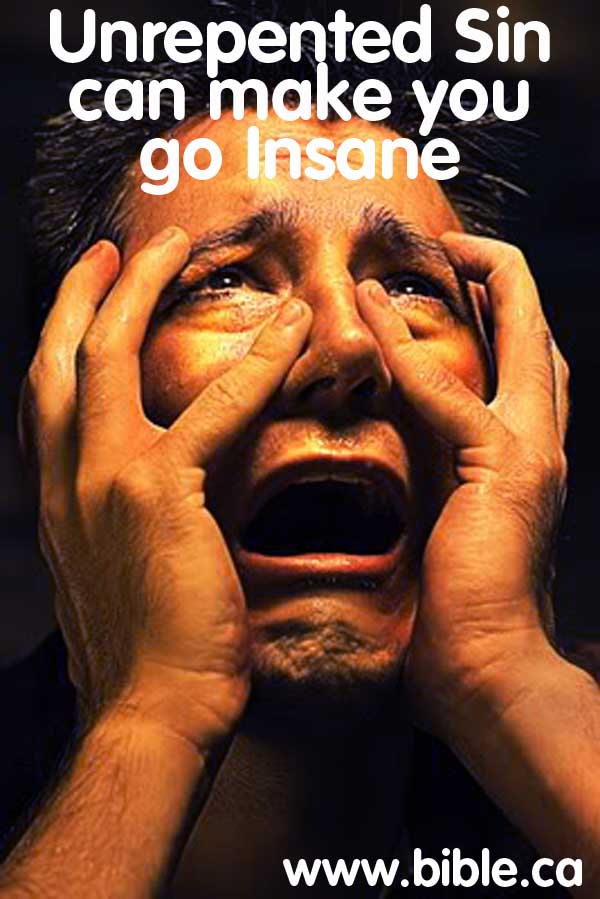Religious Melancholy
John Moore
Church Minister
1692 AD

Introduction:
In 1692 AD, John Moore, a church minister, preached a sermon to the queen about sin induced depression among Christians who have a "sincere love of God" and who experience that "which makes them fear". He correctly understands that depression is caused by sin: "dread of those Punishments, which he hath threatened to inflict on unrelenting sinners". However, he is inconsistent in his view, stating that the depression is caused by the body rather than the mind, "to judge them to be Distempers of the Body, rather than Faults of the Mind" and like chemical psychiatrists today, he actually excuses the sinful conduct as being outside the person's personal control. "they [bad thoughts] continue with you much against your consent". He even excuses their sinful conduct before God on Judgement day: "God . . . no where hath said, That Men shall be condemned for their ungovernable Thoughts, over which they have no dominion". Moore then contradicts himself and says that the cure is self control of the mind, not some drug for the body: [thoughts] "engaged in a good Matter" and he orders people to not quit their jobs: "I exhort you not to quit your employment". He goes on to advice that the cure is through keeping your mind calm with gentle thoughts: "It is not therefore a furious combat with melancholy thoughts, which will but weaken and sink the body, and to make the case worse, but a gentle application of such comfortable things as restore the strength, and recruit the languishing spirit that must quash and disperse these disorderly tumults in the head." Notice he sees the problem as "languishing spirit and tumults in the mind". This is not a bodily disease at all! This mishmash of contradictory concepts from a minister of a church may indicate he was trying to water down the message of the Bible in the audience of the Queen to save his own head! Perhaps the Queen suffered from depression and Moore did not want to offend her by blaming her depression on her own sin. (Religious Melancholy, John Moore, 1692 AD)
"Religious melancholy was the name given to any mental distress marked by preoccupation with religious duties and relation to God and salvation. Often such persons are plagued by guilt feelings or 'dread of those Punishments, which he hath threatned to inflict on unrelenting sinners' despite 'their .. . sincere love of God' ; they have ideas of unworthiness, finding 'a flatness on their Minds . . . which makes them fear, that what they do, is so defective and unfit to be presented unto God, that he will not accept it'; they suffer from scrupulosity and are overpowered by 'naughty, and sometimes Blasphemous Thoughts' which 'start in their Minds, while they are exercised in the Worship of God' despite 'all their endeavours to stifle and suppress them'. This describes what are today called obsessions, namely recurrent distressful thoughts which enter a patient's mind against his will and in spite of his efforts to exclude them; and since 'the more they struggle with them, the more they encrease' such patients 'grow more dejected'. This state was the less understandable to Bishop Moore as indeed it still is to those who suffer from 'these perplexing thoughts' since 'they are mostly good People, who are excercised with them. For had men . . . rarely know any thing of these kind of Thoughts'. Like others he argued that this was good reason 'to judge them to be Distempers of the Body, rather than Faults of the Mind'. However, his 'Advice' accorded with what one might call seventeenth century psychotherapy : 'Thoughts' should be `engaged in a good Matter', 'Passions' kept 'within due bounds', attempts be made 'to chace away . . . gloomy Apprehensions', and to avoid being 'mightily dejected' since 'as you did not invite them, so they continue with you much against your consent' and 'God . . . no where hath said, That Men shall be condemned for their ungovernable Thoughts, over which they have no dominion'. Therefore instead of 'a furious Combat with Melancholy Thoughts' which are known to 'increase and swell by vehement opposition . . . and so make the Case worse' recourse should be had to 'gentle Application of such comfortable things as restore the strength, and recruit the languishing Spirits that must quash and disperse these disorderly Tumults'. Finally he wrote 'I exhort you not to quit your Imployment . . . For no business at all is as bad for you as too much : and there is always more Melancholy to be found in a Cloyster, than in the Market-place'. That such a book filled a real need is shown by the fact that it went into seven editions (1708) and that as late as 1780 by when mental diseases were engaging the attention of many medical men, there appeared yet another and incidentally the last of its kind by a clergyman, Benjamin Fawcett's Observations on the nature, causes and cure of . . . religious melancholy, Shrewsbury." (300 years of Psychiatry, Richard Hunter, 1963, p252)
Religious Melancholy, John Moore, 1692 AD
I come now to the last case I proposed to speak to, which doth relate to these unhappy persons, who have naughty, and sometimes blasphemous thoughts start in their minds, while they are exercised in the worship of God, which makes them ready to charge themselves with the sin against the Holy Ghost, to pronounce their condition to be without hopes of remedy, and to fear that God hath utterly cast them off....
That their case is not so dangerous as they apprehend it, I shall endeavour to show by the following considerations.
(1.) Because these frightful thoughts do for the most part proceed from the disorder and indisposition of the body....
(2.) Because they are mostly good people, who are exercised with them. For bad men, whose heads are busied in laying one scene of wickedness or other, how they may gratify their malice, or execute their revenge, or over-reach their neighbours, or violate their trusts, or satisfy their beastly lust, rarely know any thing of these kind of thoughts, or use to complain of them. But they are honest and well-meaning Christians of unhealthy constitutions, and melancholy tempers, who are so miserably harrass'd by them; who above all things earnestly desire an interest in their God and Saviour, and for that reason the least dishonourable thought of him, which insinuates itself into their minds, is so dreadful unto them.
(3.) Because it is not in the power of those disconsolate Christians, whom these bad thoughts so vex and torment, with all their endeavours to stifle and suppress them. Nay often the more they struggle with them, the more they increase....
It will be therefore much to your detriment to hide yourselves from your friends, and to quit the calling wherein you were exercised; in that people of dejected tempers never fare worse than by themselves, and when they have nothing to do....
When you find these thoughts creeping upon you, be not mightily dejected.... Neither violently struggle with them; since experience doth teach that they increase and swell by vehement opposition; but dissipate and waste away, & come to nothing when they are neglected, and we do not much concern ourselves about them.... It is not therefore a furious combat with melancholy thoughts, which will but weaken and sink the body, and to make the case worse, but a gentle application of such comfortable things as restore the strength, and recruit the languishing spirit that must quash and disperse these disorderly tumults in the head.
0F Religious Melancholy.
A SERMON Preach'd before the QUEEN A T WHITEHALL, March the VIth 1691 AD
By the Right Reverend Father in God, J0HN, Lord Bishop of Norwich.
LONDON: Printed for William Rogers at the Sun over-against St. Dunstan's Church in Fleetstreet. MDCXCII
By Steve Rudd:
Contact the author for comments, input or corrections.
Send us your story about your experience with modern Psychiatry

Go To Start: WWW.BIBLE.CA
![]() See also: History of Psychiatry homepage
See also: History of Psychiatry homepage